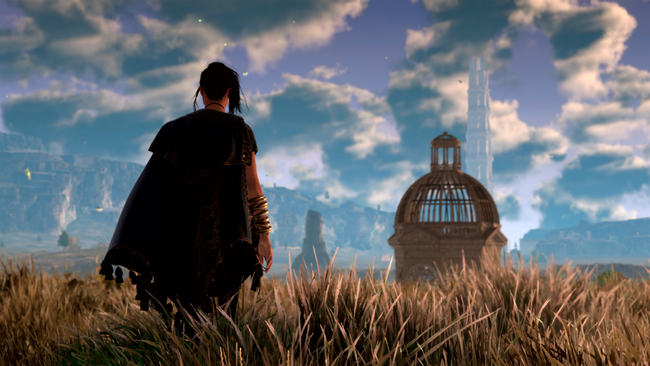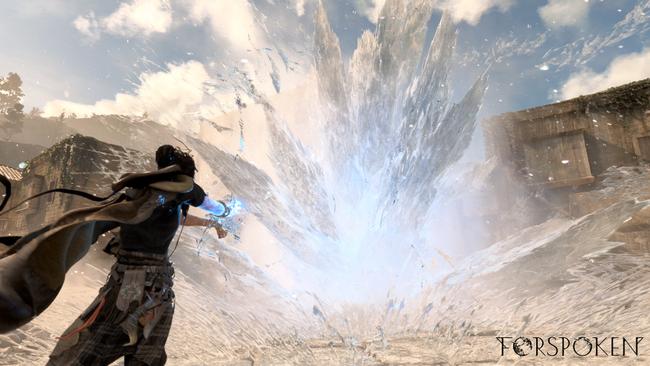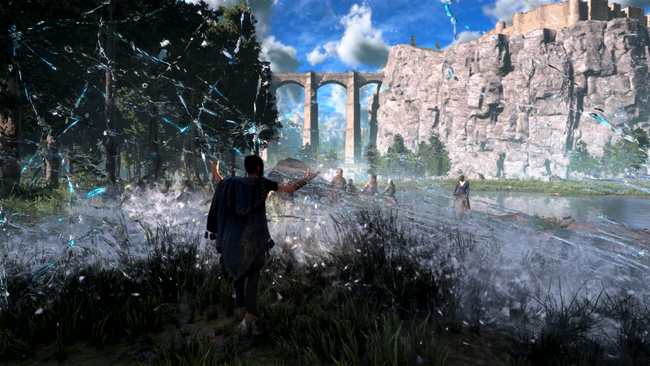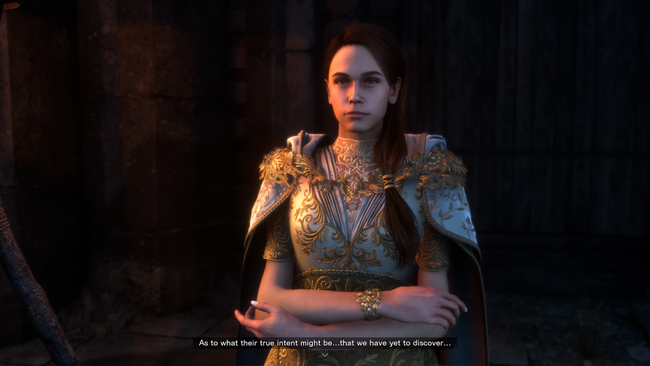
Forspoken Review
I'm always glad to see established developers bring new IPs to life. Sure, I'm always up for mainstays like Final Fantasy, and longtime readers know I'm always looking for the next SaGa title, but fresh concepts in new properties are always something to be excited about. Sometimes they work out well! Other times, like with Forspoken, it's more of a mixed bag.
I went into Forspoken mostly optimistic, although I had some hesitation about the open-world design. I don't have any outright inherent distaste for the structure conceptually, but I feel it's tricky to implement an open-world well and easy to fumble. Final Fantasy XV's take wasn't anything special, so I wasn't confident Luminous Productions could pull it off this time. Forspoken doesn't nail it either.
Forspoken takes place in the world of Athia, which as of the time of Frey's arrival, is largely a desolate wasteland ravaged by a magical scourge known as "The Break". After a guided and probably-too-lengthy sequence of events that open up the game, Frey sets off to learn more about this Break, as well as the tyrannical Tantas who threaten the livelihoods of citizens still hanging on in this dreadful world. Not only is Frey seemingly immune to the Break, but she also mysteriously gains magical abilities that allow her to defend herself from Break-corrupted creatures.

Prior to release, criticism of Forspoken largely boiled down to scrutinizing line reads or some cheesy dialogue, and sure, that's valid, but I think those are far from the game's biggest problems. Actually, I feel like outside of the game's opening hours, Forspoken's dialogue is more-or-less typical of the genre, although I did set the game's banter setting as low as possible. More crucially, I felt that the game's open-world implementation and narrative flow both stumbled in execution.
If I had to state it as succinctly as possible, Forspoken's open world feels disparate from its narrative, to the point it almost feels pointless. Besides an early game introduction into Athia, practically none of the game's narrative events actually take place anywhere in the world itself. Almost every story event and dramatic encounter instead take place in isolated locales like cathedrals, divorced from the game-world of Athia. Places in the world barely matter outside of the lone town of Cipal. The world itself is only a means to get to those progression points, and I begin to wonder if the game needed to be open-world at all. Considering other recent games that have lively and eventful worlds loaded with things to discover or people & places to distract you, Athia feels empty. I get that it's partially the point that Athia is a wasteland, but it doesn't make exploration any less dull.
The world of Athia itself most functionally works as a sort of playground for Frey's abilities, as well as a means to get from narrative point A to point B. There are various tasks dotted around the map, Ubisoft-style, that allow Frey to complete combat challenges for some equipment and stat gains, but it's hard to say it's actually compelling. Forspoken barely even has sidequest-style content either, or any other good reason to really go exploring. You either choose to progress the main narrative or complete your task checklist. That's about it. Sure, the movement abilities are fun to control, but there's practically nothing to actually discover in Athia besides more checklist tasks to mark off your completion list.

Combat is the game's strongest suit. There is a plentiful variety of abilities ranging from projectile attacks to melee weaponry to buffs and debuffs, and your arsenal gradually expands as you progress through the game. There are numerous approaches to battling foes depending on tastes, and stringing together combos to dish out loads of damage quickly is always satisfying. Everything is fast and fluid, and the game is lenient towards dodge capability too, so you always feel like you're in control of your actions and movements. If you take a hit, it really feels like you made a mistake rather than the controls not cooperating. Boss fights are also quite solid, for the most part, although I feel they too often rely on the "summoning underlings to fight for me" trope.
Even though I felt mostly positive about Forspoken's combat design, I still have a few qualms about the way it's actually implemented into the game. Especially in the game's optional objectives scattered around the world, Forspoken likes to throw wave after wave and wave of enemies at you. There are just so many enemies in this game that even the fun and fluid battle system begins to get old. This was a criticism I levied at Assassin's Creed Valhalla, too, in that you'll spend a lot of time mowing down through far-too-many enemy mooks that combat can't help but get somewhat stale. I would have far preferred a smaller number of more unique enemies rather than countless waves of the same baddies over and over.
The game is also strong visually, although sometimes the magic effects do become a little bit overwhelming, and sometimes the battlefield fills up with visual noise. There are a few accessibility options that help here, and in general, the game should be commended for the efforts made in this regard.

It's pretty easy to ignore Forspoken's open-world, considering how inconsequential it ends up being. It's unfortunate, then, that the main storyline of the game doesn't quite entice either.
From a narrative nuts & bolts perspective, Forspoken starts out with a mystery. Not only is Frey transported into a mysterious other world, but the Tantas, once benevolent and well-regarded rulers of this land, have become hostile and dangerous for unknown reasons. Frey seeks these tyrants out to stop the bloodshed and hopefully find a cause for their animosity. Without getting directly into the details, Frey ultimately learns *what* is causing the Tantas to act the way they are, but never quite the "why". Optional lore collectibles in some of the game's side-dungeons further explain *how* the game's central conflict took place, but never quite give a solid reasoning behind the conflict itself.
I was hoping that the In Tanta We Trust DLC might shine a little bit more light on the motivations of the game's villains, which are otherwise absent, but this disappointingly short ~2-hour expansion offers little. Funny enough, one of the characters here outright mentions how the antagonistic Rheddig's motivation is a mystery, and it's never followed up upon. It seems like this motivation is left for a hypothetical sequel that currently seems unlikely to happen, at least anytime soon, considering Luminous Productions no longer exists. Not all narratives need conflicts to be cut-and-dry or anything like that, but for world-altering stakes in the game's final encounter, it would be nice to have some idea about why we are fighting at all. I've personally never been a fan of hiding some mysterious grand-stakes conflict in the background when the forefront narrative suffers for it.

That's not to say that the cinematics or acting are poorly done, because generally speaking, the presentation of the narrative is good or even great. It's just that the actual substance is thin, surprisingly so, and I can't help but feel disappointed in it.
For all its ambition, Forspoken doesn't bring much new to the genre, and instead falls into various pitfalls common with open-world games. While the combat is serviceable and fun in spurts, the game's narrative, characters, and exploration all come up short. It's too bad it seems like Forspoken won't get a second chance, because I think there is some potential sitting dormant underneath all the imperfections, but it looks like Frey's journey will remain a missed opportunity.